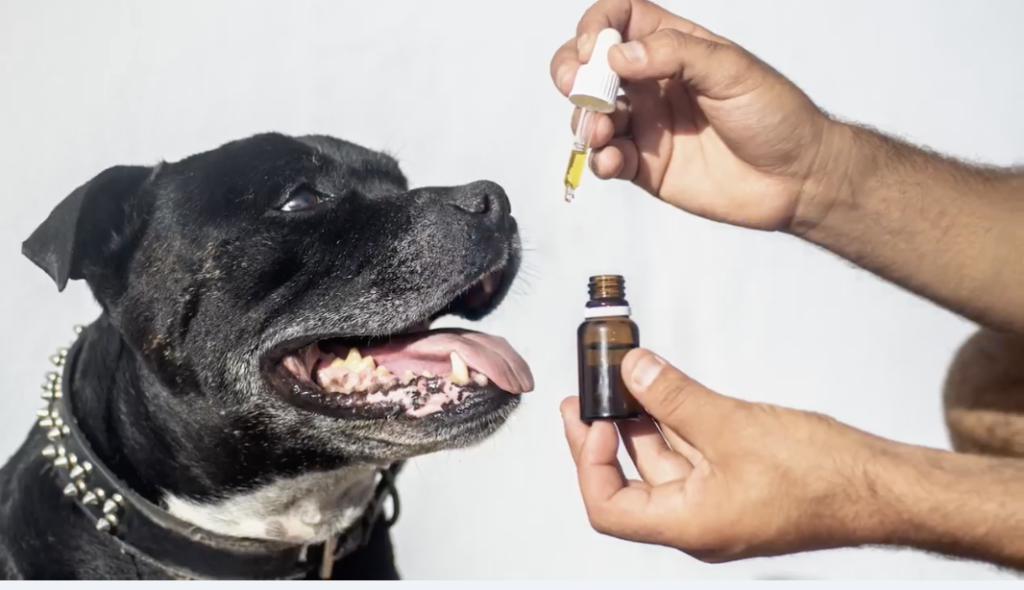CBD Oil vs Hemp Seed Oil for Dogs
Have you been inundated with advertising for hemp seed oil or CBD oil for your dog?
There has been a huge influx of product offerings containing hemp seed or CBD oil, so wondering what’s the difference? Aren’t they both made from the same plant you may ask? Let’s get clear on these terms so you know what is safe for your dog.
Hemp seed oil and hemp seed products
Hemp seed products have been legal as a food in Australia since 2017. The seeds are a great source of protein, fibre and essential fatty acids such as Omega 3, 6 and 9.
Hemp seed containing treats, toppers and pet foods are likely to be the products you’re seeing pop up at your local pet store.
Proteins are essential building blocks for life that contribute to a vast range of body functions and omega fats support healthy joints, cardiac and immune function.
While it is clear these nutrient-dense seeds can offer many health benefits, hemp seed products don’t have a high enough concentration of CBD to create the therapeutic effects associated with medicinal CBD products.
CBD oil for dogs in Australia
CBD, cannabidiol, is a primary phytochemical or cannabinoid found in Cannabis species. Unlike its widely recognised cousin cannabinoid THC, CBD is non-intoxicating and does not elicit the same “high” as THC.
Hemp, by its nature, has very low levels of THC – which is why it is so often used for the extraction of CBD.
Due to their physiology, dogs have a lower threshold for THC than humans. This means it is hugely important for the safety of your dog that any CBD oil product is assessed for its cannabinoid content. You need to avoid any possible adverse effects of THC or other additives that could be harmful to their health.
Benefits of CBD oil for dogs
CBD oil has been shown to have a number of benefits in humans and naturally this has spurred an interest in how CBD may improve certain conditions in dogs.
Three key areas where CBD oil may help dogs are:
- Epilepsy
- Osteoarthritis
- Chronic pain
Epilepsy is the most well-known condition where CBD may provide relief. In humans with treatment-resistant epilepsy, CBD oil has shown significant reductions in seizure frequency. The same goes for our canine friends, where CBD has exhibited a 33% reduction in seizure frequency in epileptic dogs.
CBD has also been researched for its positive effects on osteoarthritis in dogs. Potentially through its anti-inflammatory action, CBD has been shown to help mobility and progressively reduce symptoms in some dogs.
Whether it is pain from arthritis or some other cause, our four-legged friends suffer just as readily as we do. When typical pain relief isn’t providing effective reductions in pain or is impacting their quality of life, CBD oil may be a viable alternative.
Given its anti-anxiety and antioxidant effects, the momentum gained in the arena of CBD for pets, plus a little anecdotal evidence from pet owners, we may soon see CBD being investigated for dogs and other pets with anxiety, skin or sleep disturbances.
Safety and side effects of CBD
CBD appears safe for dogs with careful dosing under the supervision of a trained vet.
The most common side effect for dogs taking CBD is loose stool. This is generally recorded infrequently and can be managed by careful dosing directed by your prescribing vet.
The wrap up
The differences between hemp products and CBD oil can be vast and labelling confusing.
For the safety and wellbeing of your dog make sure hemp seed oil or hemp seed food products are clearly labelled and appropriate for your pet.
Should you feel that CBD oil may benefit your dog, working with your vet is essential. Please be aware that black market products you may find online can be very harmful to your dogs health.
It is likely that we will uncover more medicinal actions of CBD oil for dogs and other pets’ health and wellbeing in the future.
CBD oil may improve the quality of the life of your four-legged friend when administered safely by a veterinary doctor.
If you would like to learn more, please reach out to our friendly team at CBD Vets Australia on (02) 8294 9303.
By Jessica Kindynis




